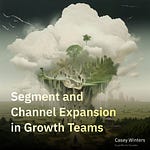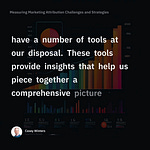I want to talk about evaluating job offers during the current landscape where AI is changing everything. Many professionals are concerned about the choices they are making and the companies they are considering joining. I’m getting a lot of nervous calls.
One key point to consider is that there are numerous companies that are experiencing rapid growth, reaching $10 million to $100 million in annual recurring revenue faster than we previously thought possible. However, this does not necessarily mean these will be beneficial companies to join from a career standpoint. While initial revenue growth may be enticing, it's crucial to evaluate if these opportunities have longevity, especially given the rapid changes brought about by AI.
When evaluating career prospects, it’s important to take a long-term view and consider whether these roles will remain relevant and secure in the future. The classic Bezos quote of what won’t change in the next ten years has never been more relevant. Despite initial success and excitement, a lot of the first wave of AI companies could be half measures to deeper technological innovation that may win out long term. Or incumbents with better distribution may cut off the growth of some of these companies with copycats. A key question here is do these companies control their own growth loops, or are they mostly word of mouth. Word of mouth growth always dies off after periods of technological change slow down.
For those aspiring to become leaders in their field, it is advisable to align with companies that have the potential to become iconic. While some companies may be successful and generate substantial revenue, they might not achieve that iconic status which provides substantial professional leverage and opportunities. It’s crucial to make informed decisions about where to invest your time and talents.
And once you’ve worked at an iconic company, I think a lot of people under-weight the problems with switching to a non-iconic company that may offer them better comp or a better title. Once you’re working at B-list or worse companies, it becomes harder for iconic companies to consider you for their openings.
Ultimately, making smart career decisions involves assessing whether the company has the potential to evolve and succeed over a longer timeline. Even if things don’t work out as planned, recruiters and future employers will look favorably on the decisions you made based on the available information. They will analyze whether they think you made a good decision at the time. So if you join a hot AI company like say Eleven Labs or Glean and they cool off, that will still not work against you in the market. If you however joined Getaround or Nextdoor and they don’t turn around, people will think the weird decision you made with your career reflects negatively on the decisions you might make for their company.
Most gen one companies during technology shifts are not durable. Sure Amazon did well as an early internet company, but 99% died. Sure Instagram did well as an early mobile company, but foursquare and Urban Spoon and thousands of others faded away.
I think what is also critical is joining a company that is changing the way it works to stay current with AI. If none of the engineers are using coding assistants like Cursor, and people aren’t prototyping with tools like Bolt, maybe beware that they will be sunk by companies that are leveraging those tools to be more productive. You can’t sit on the sidelines when the world is changing this fast.
Especially for early-career individuals, investing in developing skills that will be crucial at prominent companies in the future is essential. Identifying and acquiring these skills will better prepare you to excel in interviews and positions with top companies looking to innovate and lead in their sectors.
So, to recap, don’t just look at current growth. Project out can the company remain elite five to ten years from now. Think about current or future iconic company potential, and don’t let short term optimizations push you away from the best companies. And make sure the way they work and you work align to what the job market will value today and in the future.
Currently listening to my 2004 playlist on Spotify.









